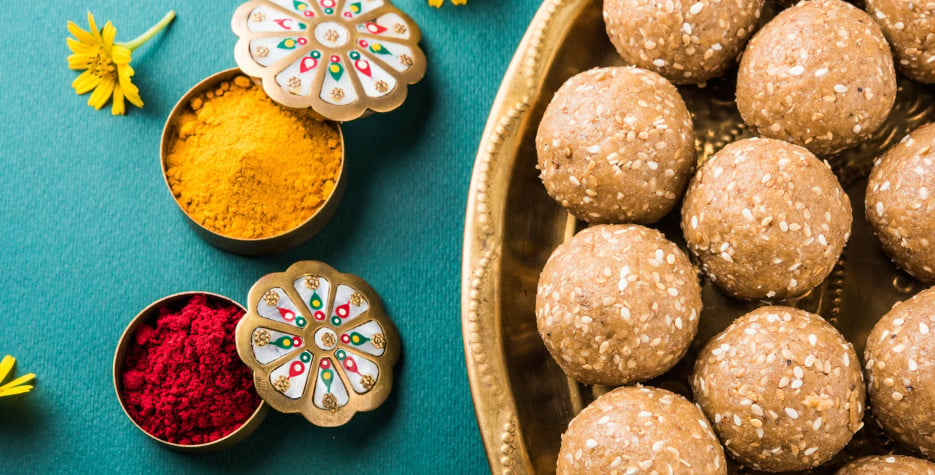Tamil Thai Pongal Day in Sri Lanka
In Sri Lanka, this Hindu festival is traditionally an occasion for drawing rice-powder based kolam artworks, offering prayers in the home, temples, meeting with family and friends, and exchanging gifts to renew social bonds of solidarity.
When is Pongal?
This is a popular Hindu festival that occurs on or around January 14th across India. It is also celebrated as a public holiday in Sri Lanka.
The day is known by various names and various customs are observed in the different Indian states.
Despite these variations, it is a harvest and thanksgiving festival marking the start of spring, the end of the traditional farming season and the gathering of the first food from the harvest.
It is unique among Hindu festivals as the date is based on a solar calendar rather than the phases of the moon. This means it falls on January 14th in the Western calendar.
The date of Pongal marks the start of Uttarayana, the time when the sun starts to move northwards after the winter equinox.
This date is now actually December 21st in the Western Calendar, but the time of the equinoxes moves by 50 seconds each year due to the wobble of the Earth's axis.
This shows the ancient age of this festival - a thousand years ago, the festival was on December 31st.
Uttarayana is also considered a time of good fortune and important events are scheduled during this period.
Celebrations across India
Tamil Nadu, Andhra Pradesh, Karnataka
The festival is celebrated for up to four days and is known as Pongal.
The harvest festival is known as Pongal and lasts for three days.
In Andhra Pradesh, the first day is known as Bhogi, and it is a day of cleaning and cleansing; old clothes are thrown away, marking the start of new life.
The second day is known as Pongal Day, and is celebrated as Surya Pongal. This is the key day for celebrations and holidays in many states. To mark a good harvest, milk or rice is cooked until they boil over - 'Pongal' means 'it boils'. The food is offered to the gods (including the sun or rain gods, depending on the region's climate) before people eat it to cleanse themselves of past sins.
The third day is Mattu Pongal (festival of the cow). It is a day to offer thanks to the village cows and oxen, who played a key role in the season's farming as they are used to plough the land. The cows and oxen are bathed, decorated with garlands and worshipped.
The fourth day is known as Kanum Pongal or Kanyapongal. In Tamil Nadu, it may be called Uzhavar Tirunal. On this day, importance is given to the community and to strengthen ties. Families gather together to have a sumptuous meal. Younger members seek the blessings of the older members of their families. It is also a day for traditional Indian folk dances such as mayilattam and kolattam.
In southern India, all three or four days of Pongal are considered important. Southern Indians who have settled in the north will usually celebrate the second day. As it coincides with Makara Sankranti in the north, it may also be called Pongal Sankranti.
Maharashtra, Gujarat
Here the day is known as Makar Sankranti. Makara Sankranthi refers to the event of the Sun entering the zodiac sign of Makara or Capricorn, marking the start of its northward journey. It is a festival of the young and the old.
In Ahmedabad in Gujarat, a large part of the celebration is the International Kite Festival. The skies are filled with kites, and kite makers come from many other cities to make and fly multicoloured kites in all designs and sizes. At night, kites with paper lamps fill the sky with light.
Punjab, Himachal Pradesh, Jammu and Kashmir
Lohri, the harvest festival of Punjab, is celebrated with great enthusiasm every year. The festival may also be known as Lohadi or Lal Loi and is usually a gazetted holiday. December and January is winter in Punjab and bonfires are lit on the eve of Sankranti. Sweets, sugarcane and rice are thrown on the bonfires and friends and relatives gather together. People sing folk songs, perform bhangra, gidda and chajja, and relish traditional dishes by the bonfire. This auspicious festival is marked with a lot of fervour.
Uttar Pradesh
The period is celebrated as Kicheri. An important tradition on this day is to have a bath and masses of people can be seen bathing in the Sangam at Prayagraj where the rivers Ganga, Jamuna and Saraswathi flow together.


